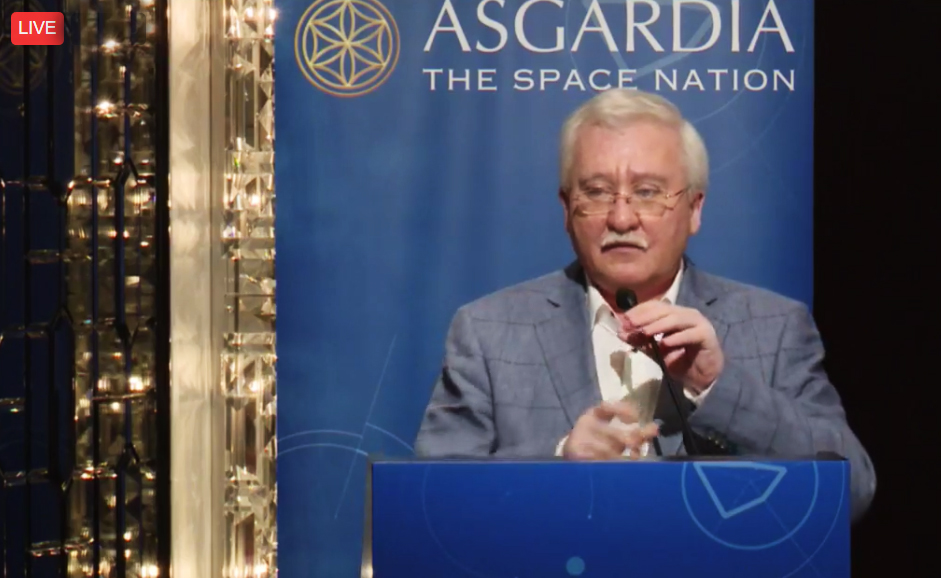A team of international scientists, academics and entrepreneurs announced plans in Hong Kong today for the launch this autumn of Asgardia-1, the inaugural satellite of the world's first space nation. Led by Dr Igor Ashurbeyli, one of the world's most distinguished rocket scientists, the launch will mark a significant tangible step in the foundation of Asgardia, which is independent of any country on Earth but subject to international law.
The nano satellite will be a marker for the nation and become the foundation stone of a permanent presence in space. It will contain data from up to 1.5 million Asgardians and stored in orbit for free.
Dr Ashurbeyli said: "Asgardia will now demonstrate that space is within our grasp. Last year in Paris, when we launched Asgardia, many people were sceptical that we would ever put anything in space. But I can confidently announce today, that we will be launching a space satellite, Asgardia-1."
He announced that Asgardia’s first spacecraft will mark the beginning of a new space era, taking it citizens into space in virtual form as a first step.
"Asgardia-1 is our first, small step which we hope will lead to a giant leap forward for mankind. It will be our foundation stone, from which we will look to create a network of satellites that will help protect our planet against asteroids, solar flares, man-made space debris, and other space hazards,” he added.
Asgardia aims to establish a legitimate, independent first space nation, which is recognised by states on Earth and the United Nations. This new nation will face towards space in its own future development. But to do this, Asgardia requires its own constitution, which has been developed over the past six months with the help of legal experts and others in the community.
The news follows last October's announcement in Paris of the creation of Asgardia and the launch of the citizenship process. In the first 48 hours following that announcement, over 100,000 people on earth registered as Asgardians, rising to above 500,000 registrations in the first 20 days.
So many people registered that Asgardia stopped taking in new applications and switched to a second level of verification which excluded minors who registered without the permission of their parents, duplicate applications, those who did not provide additional information, and various bots.
Asgardia now has close to 200,000 citizens from around 200 countries who will now have a chance to vote on a new Constitution of Asgardia which is being presented today, and will define the new Nation.
Verified citizens of Asgardia can visit the website www.asgardia.space to cast their vote. In addition, the site will also allow for people to continue registering to become citizens of Asgardia alongside their nationality on Earth.
Prof Ram Jakhu, Director of Aerospace Law School at McGill University, Montreal, Canada, said: "Law is necessary for certainty in human behaviour and for supporting innovations in human progress. Progressive adaptations and new developments in law are indispensable for facilitating technological and entrepreneur advances for the betterment of humanity not only on our mother planet, Earth, but also for humanity's migration to the universe."
Implementation partner for first Asgardia satellite is the US-based private company NanoRacks which develops products and offers services for the commercial utilisation of space from its base in Houston, Texas.
Jeffrey Manber, Nanoracks CEO and co-founder said: "We are delighted to be providing a turnkey solution to Asgardia’s in-space needs, from locating the satellite to the launch and final deployment into space. Asgardia is a creative and exciting new chapter in our eternal questioning of how humanity will live and work in space. We're excited about the its future."
Asgardia-1, a 10 x 10 x 20 cm, 2.8 kg cubesat with four deployable solar arrays, will primarily be a data storage satellite. It is scheduled for launch into orbit on 12 September by an Orbital ATK Antares rocket carrying the ninth Cygnus cargo freighter, which will be on its eighth operational cargo delivery flight to the International Space Station.











